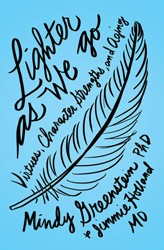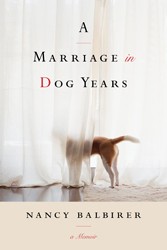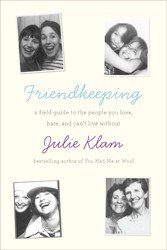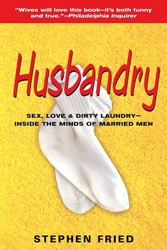This trio of autobiographies approaches life from different paths, but common themes emerge — surviving an awkward adolescence, embracing motherhood, grappling with cancer, and mastering assault weapons, for starters. But regardless of subject matter, all three memoirs have moments where you will have to put the book down and let yourself laugh in tribute to these fearless, brutally honest scribes.
Psychologist Mindy Greenstein (The House at Crash Corner) and writer Jill Kargman (Sometimes I Feel Like a Nut) wax on what it means to be female and Jewish in New York. Greenstein, a product of Yiddish-speaking Holocaust survivors and compulsive gamblers in lower-middle class Brooklyn, and Kargman, a privileged child of the Upper East Side, have more in common than it would appear on the surface. From childhood to motherhood and everything in between, no subject, however embarrassing, is off limits. Coincidentally, both also like to blow off steam at the shooting range and profess to being good shots.
Television writer and standup comedian Michael Showalter (Mr. Funny Pants) takes a divergent tack, penning absurdist, nonsensical, and roundabout musings that reveal little about his history but much about his creative process. Unlike Kargman and Greenstein, Showalter evolves little during the course of his book, spending most of his time talking about his affinity for sandwiches and sweaters. But he also earnestly debunks clichés and sometimes he’s right on the money, as when he lists his maxims for writing and selling a Hollywood screenplay: “All High School Jocks are Evil Unless They Have a Secret Talent That They Can’t Tell Their Fathers About.”
Kargman is delightfully uninhibited, revealing the parts of life one would most want to hide — warts, humiliations and all. The happily married, 35-year-old mom of three spins raunchy sitcom fodder that lands somewhere between PG-13 and X. But you get the idea that it’s a family you’d like to be part of, especially when the adult Kargman, her brother, and her parents visit a Los Angeles tattoo parlor to get matching ‘K’’s inked on their bottoms. She’s breezy and lighthearted, with childhood memories light on trauma but heavy on laughs. The worst trauma during her high school years at Taft, for example, (see chapter “Wednesday Addams in Barbietown”) was when Kargman discovered she was one of only a handful of prep school classmates not to own a Patagonia jacket.
Greenstein, the most somber of the three, had a less comfortable childhood, and most of her early memories are painful. One classmate, “ a pretty girl who knew ten different ways to tie a scarf,” made fun of Greenstein for looking like an immigrant. Greenstein’s best friend nicknamed her “The Shadow” in first grade “because of my habit of following her around mindlessly, never offering opinions or suggestions for activities.”
But humor is a timeless survival mechanism and the humor of Greenstein’s childhood is not lost on her, especially when she describes a police squad’s arrival at her house following her mother’s 911 call reporting that her disrespectful son put the mil’khik dish in the fleyshik sink before mooning her (“BUT HE SHOWED ME THE TUCHUS!!!! HE SHOWED THE TUCHUS TO ME!!!!” her mother screamed after being chided.) “I didn’t need to sit on the brown felt chair to know what happened next,” Greenstein writes. “I heard four car doors open and some sharp laughter in four-part harmony before the doors slammed shut in almost perfect unison.”
The last two-thirds of Greenstein’s memoir is serious, as she becomes a prison therapist, a cancer psychologist, a “true boy mom” to two sons (free spirits who love arm-farts) and, finally, a cancer patient herself. It’s difficult to wring humor from hospital bed rests and bouts of anxiety over the chemotherapy needle, but Greenstein, in her steadfast manner, perseveres and triumphs.
Discovered during a Botox session with her dermatologist, Kargman’s cancer left an eight-inch scar up her thigh à la Sally from “The Nightmare before Christmas” but the unsinkable Kargman braves it in her typical fashion. “I weirdly dig it,” she says. “It’s a jagged badge of honor that shows how lucky I am. And it’s a reminder that I need to slather sunblock on my kids like I’m papier-machéing them in zinc.”
Showalter’s journey is murkier. In the book’s Afterward, he writes, “Do I regret that, instead of writing an accomplished and searing work of nonfiction, I wrote what basically amounts to a random string of unconnected and incoherent thoughts primarily on my cats? It’s not an easy question to answer.





